Everyone enjoys relaxing by the pool, especially on sunny days, which has increased the popularity of both inground and above-ground pools.
For those considering a less permanent option, our above-ground pool ideas offer flexibility and ease of maintenance.
The main question with these above-ground pools is how hard it is to maintain the above-ground pool and other related concerns.
No worries. We have compiled this post to help you understand more about the above-ground pool in the ground.
Common Above-Ground Pool Issues
Every pool faces common issues like dirt, dry leaves, bacteria, and other things that regularly need maintenance.
These factors lead to other common problems like cloudiness of water, which makes the water dirty and becomes a breeding ground for more bacteria and diseases.
This also gives the water algae a good opportunity to start germinating and spreading in the water.
Overall, all these things create problems for the water pump and filter issues that directly affect the water circulation in the pool above the ground.
Normal Maintenance of Pool
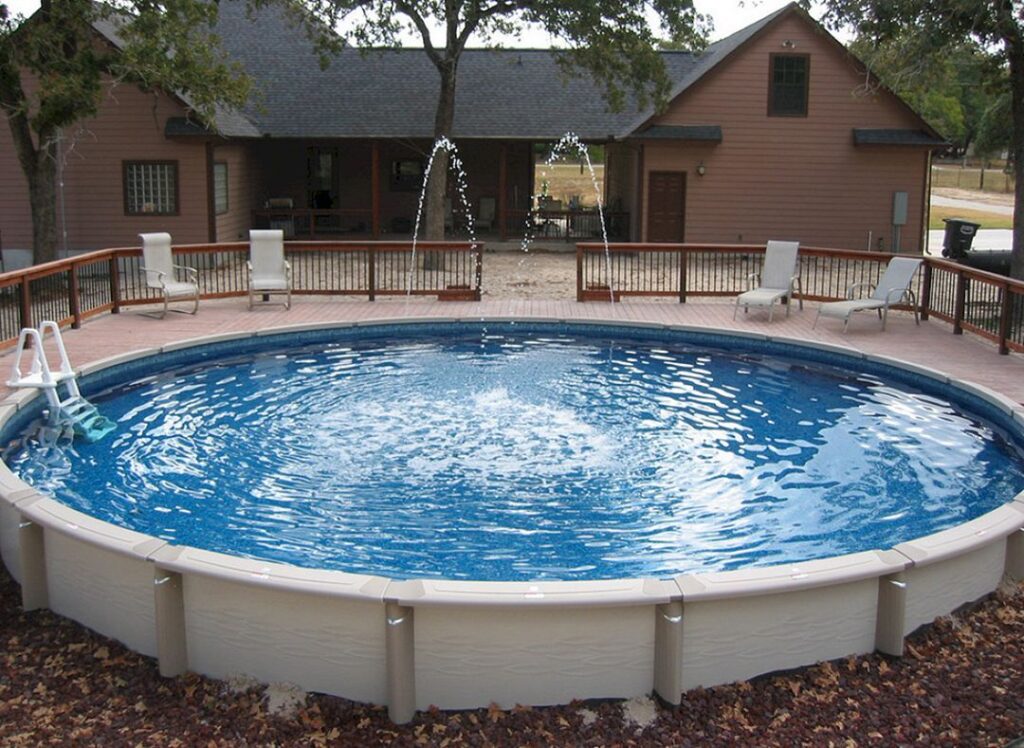
Normal maintenance includes the activities and things that need to be done frequently and more actively so that the pool remains safe from the perspective of health and functionality.
For this, pool owners decide on a normal pool maintenance schedule depending on the frequency of changes they observe in the pool above the ground.
This might save them from keeping the pool in a functional state, or else it will become extremely hard to maintain the pool above the ground.
So, deciding the schedule for the normal maintenance of the above-ground pool is crucial, as it will help you stay proactive and manage the pool more efficiently.
1. Clean the pool
Things like cleaning dirt, dry leaves, and other outside garbage that falls in the water incidentally are the basic steps to keep the pool in maintenance.
Tools like the pool brush or pool vacuum will make this maintenance easier. So, regularly clean the pool water, baskets, and tools related to the skimmers and water pump.
Cleaning the water pump filter frequently is also important to maintain water circulation. If needed, replace the water filters regularly.
2. Maintain the pH of Pool Water
You can balance the water’s pH before changing color, like turning greener or milky. So, regularly check and test the pH of pool water.
Otherwise, when the water becomes cloudy, it will increase the cost of cleaning the pool and impact the water pump and filtration system.
Balancing and maintaining the pH level of water and keeping the water pump and filter system functional is important for the basic maintenance of the pool above the ground.
Things like digital pool testers or Pool test kits will help make the pool water pH testing easier.
Seasonal Maintenance of The Pool
With the change in temperature and season, the same pool has different issues.
So, it is also important to focus on season maintenance if you don’t want to make above-ground pool maintenance harder or more costly.
During the Hotter days and Summer, pool water is frequently used, and during the winter and colder days, it is almost neglected.
Both seasons and temperatures have their ways of maintaining pools.
1. Use the Right Pool Chemicals
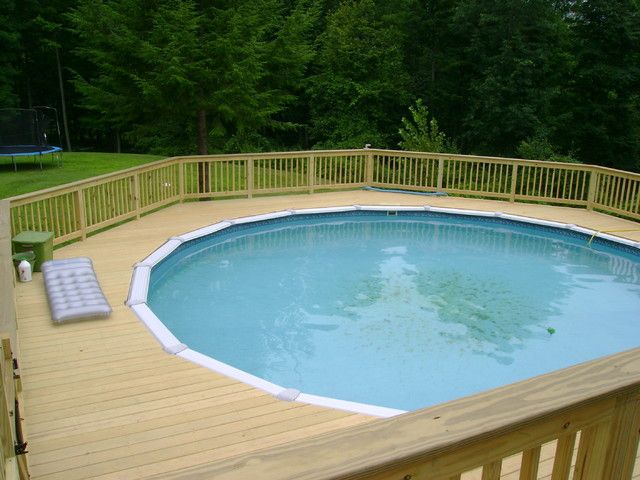
During the summer, the frequency and speed of water testing should be increased. Other issues, like the formation of algae, also need quick solutions and maintenance.
So, chemicals are particularly used for the pool water to kill the bacteria and stop the spreading of algae formation.
Chemicals like the Pool Chlorine are commonly used for this purpose, considering the health factor.
You can easily place them in chemical dispensers, like tablets used as floating pool dispensers.
If your pool’s water capacity is 10,000 gallons, you can add 3 Chlorine tablets to it, and they will work actively for the whole week to protect your pool water from bacteria, algae, and microorganisms.
2. Winterization of The Above Ground Pool
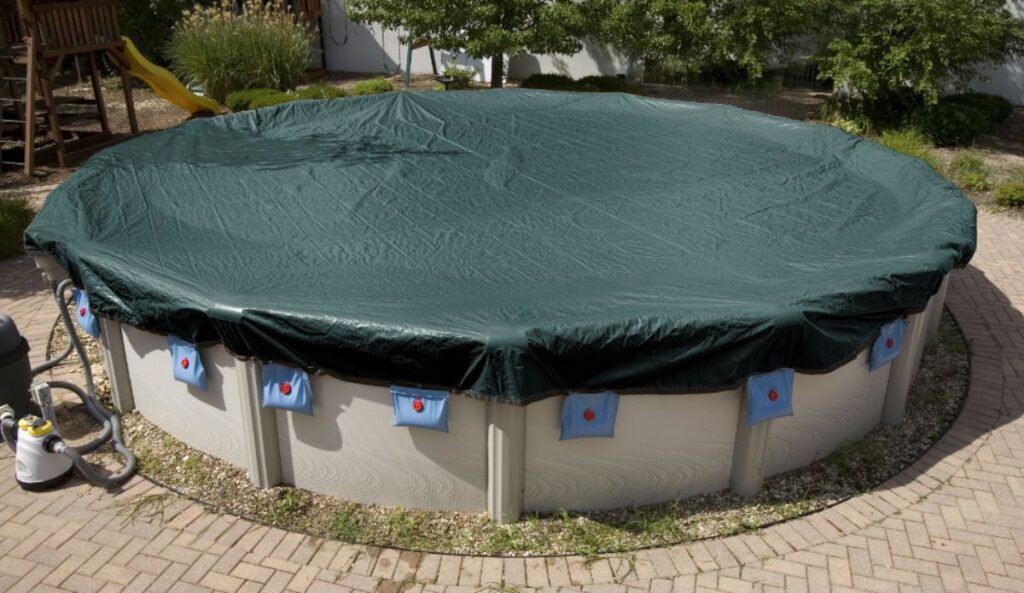
When the pool is not in use, especially during the winter, cover it properly or follow the winterization process to save your pool from unwanted issues and maintenance.
Until and unless you don’t want to pay a lot of money for winter maintenance or proper pool winterization, learn more about suitable winterization methods that can help you keep your pool in good and usable condition during the next season.
Cleaning the pool and filling it with clean water. For the betterment, don’t leave the pool drained.
Add the chemicals used for the Pool water pH balance, like the Chlorine tablets and other winterization chemicals, from the above-ground pool kit.
Detach the water pump and filtration system from the pool. You won’t need to circulate water regularly until next season.
Also, remove the ladders, pool lines, and other detachable pool supplies and accessories.
Use the air pillow and water pool cover to cover the above-ground pool.
The pool cover will stay upward because of the air pillow and won’t freeze with the pool water during the colder temperatures and winter season.
Final Thoughts
With the rise in the economy, things and their placements are changing, and people who can afford the things are keeping the quality and maintenance factors higher than frequent costs.
Understanding crucial factors like affordability, availability of location, especially in crowded areas, maintenance, and the durability of the pool are some of the essential things that affect the above-ground pool in the ground.
This post showed you how hard it is to maintain an above-ground pool to help you better understand and set the right expectations about the pool’s installation from the beginning.
If you want more ways to add value to your lifestyle and maintenance experience, sign up and get our best tips and strategies sent to your inbox.

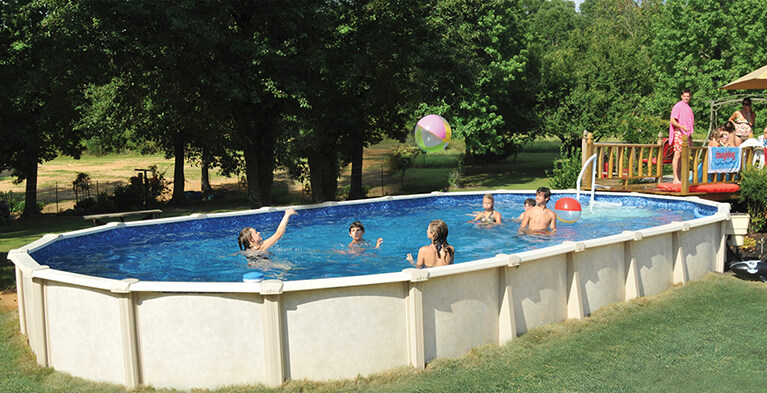
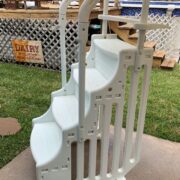
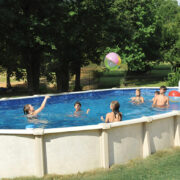
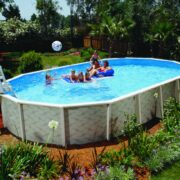
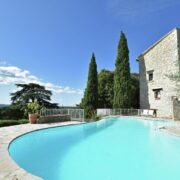

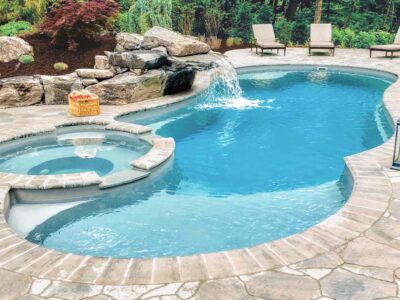
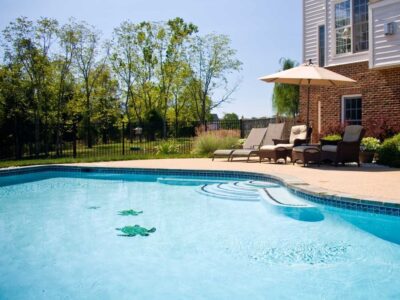
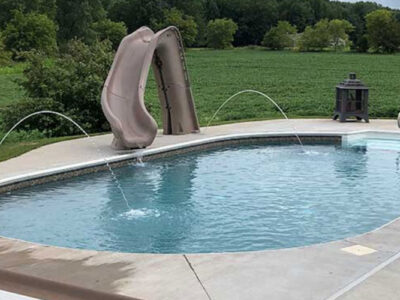
Comments